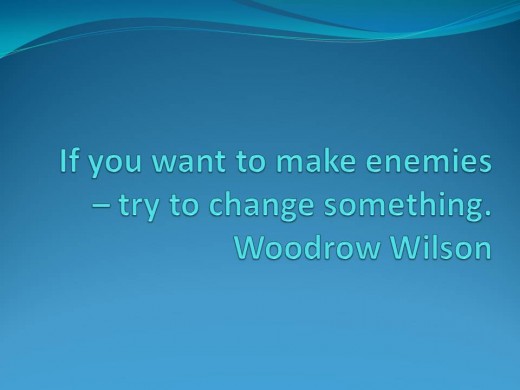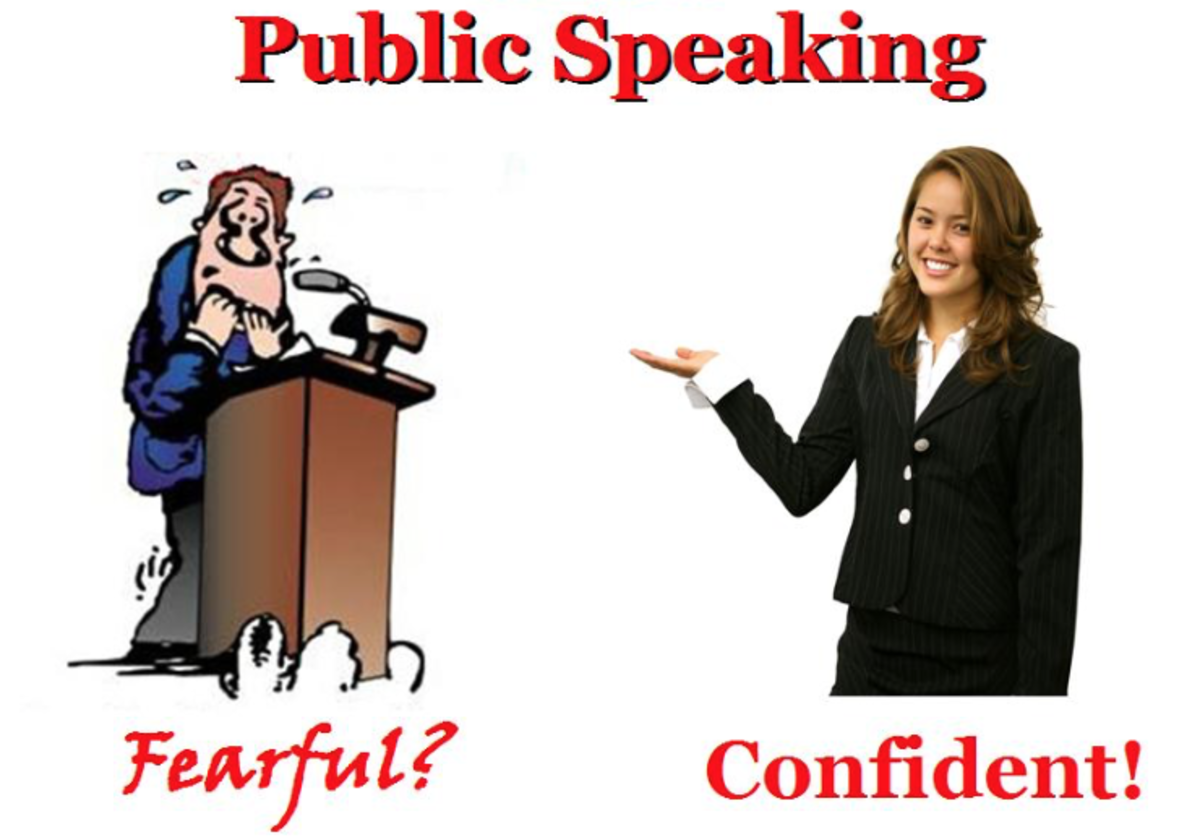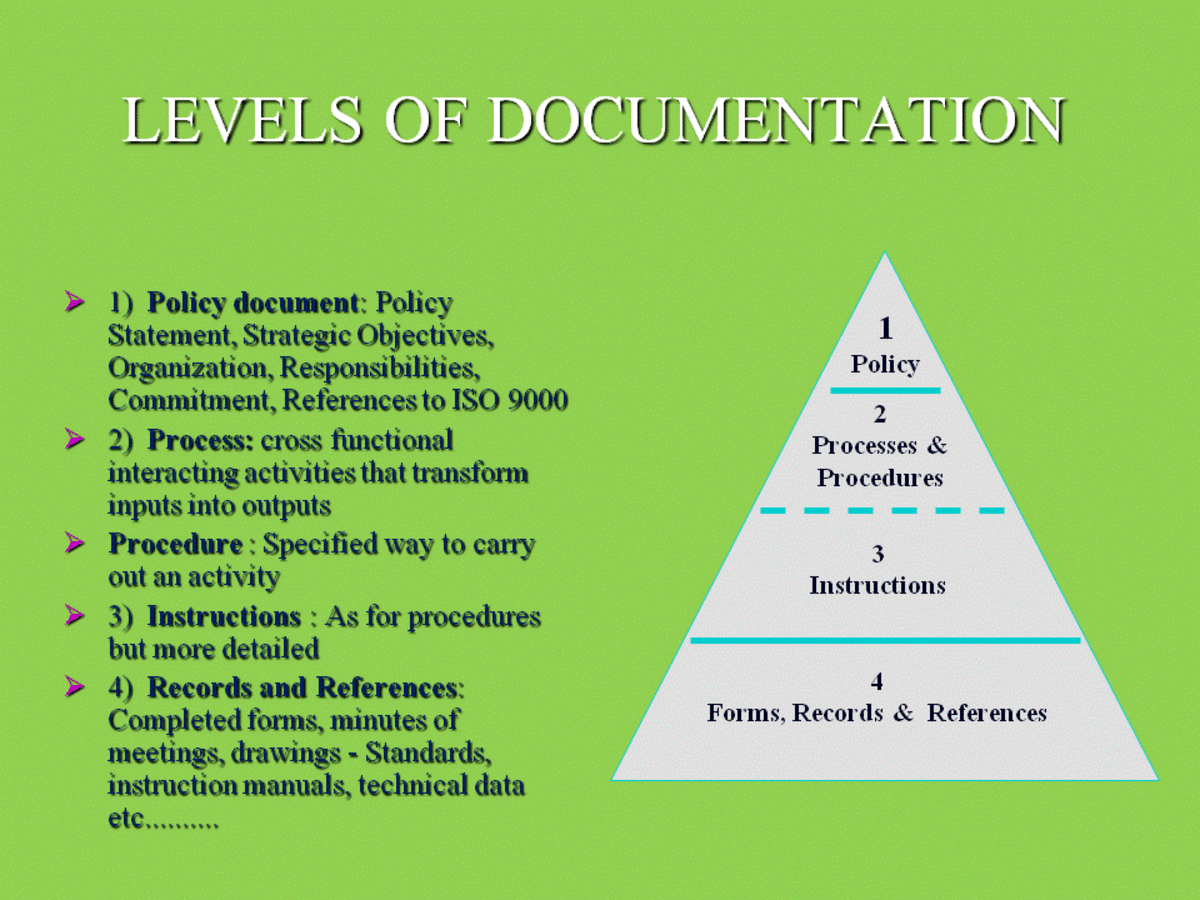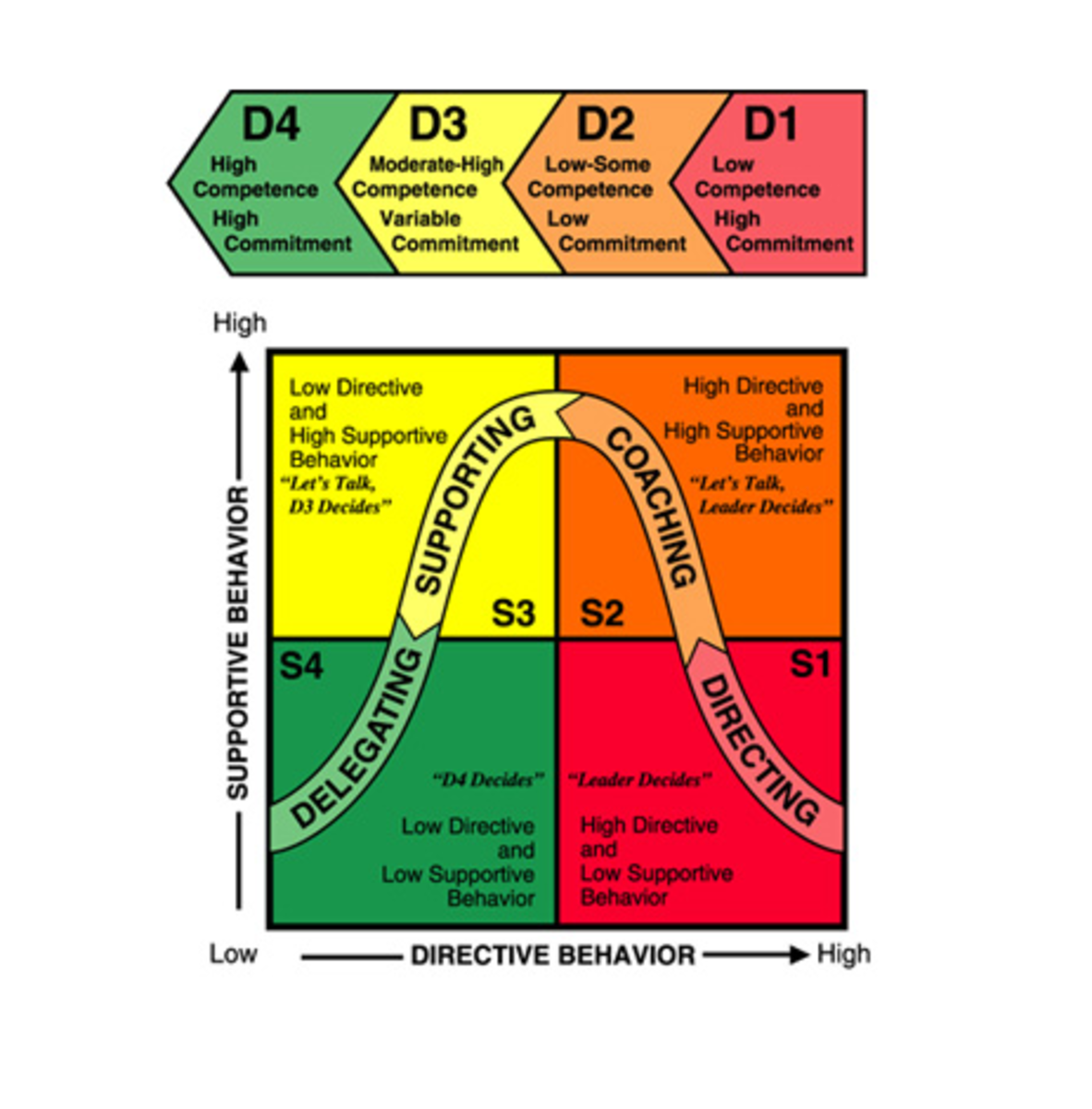Public Speaking and Communications - Important Elements of Being Persuasive
The elements of effective persuasion permeate our entire life. The need for persuasive skills is a major element in our professional lives. What are the elements. How do we achieve our goals. Communications is a complicated tapestry. As a former CFO and adjunct faculty member specializing in Communications this is a subject I enjoy because I have seen the impact of great communicators. Journey with me and learn some important building blocks to dynamite ways to persuade.
One news organization has taken persuasion to a brand new level with their motto being "We report - you decide." Yet, often as writers, leaders, managers, workers, we have the need to persuade. Even in our personal lives, how can we benefit from the science, sometimes art of persuasion.

"All our knowledge has its origins in our perceptions."
— Leonardo Da Vinci, Italian 1452-1519"To effectively communicate we must realize that we are all different in the way we perceive the world and use this understanding as a guide to our communication with others."
— Tony Robbins American 1960-Changing Attitudes
One of my heroes changed the American culture on diversity. Yes, Lincoln freed the slaves, but it was John F. Kennedy who educated us about life. Kennedy not only ended the every day drama of segregation here in the United States, he also highlight that he was not a "Catholic candidate for president." He detailed that is also happened to be Catholic. Like Jefferson and Lincoln who fought for freedoms, Kennedy stated "I do not speak for my Church on public matters - and the Church does not speak for me."
Changing attitudes, changing opinions, what does it take? What are the elements of great persuasion but more immediate how do we prepare a persuasive report?
#1 Perception is Persuasive - Always Be Enthused
We cannot change the opinion of another without believing it ourselves. Writing is all about what we are "charged up" about. What motivates us. For our founding fathers such as Lincoln, Jefferson, and Kennedy they walked the talk.
Enthusiasm goes a long way in perception. Perception is the most persuasive.
#2 Your Purpose Cannot Be a Personal Agenda
Marketing and selling are often tied financially to our jobs and our livelihood. The greatest element of persuasion is persuading others not just on your candidacy as Kennedy did, not just on freedoms as Lincoln and Jefferson and Adams did, but on truly having a humanitarian purpose.
When I was CFO and attended board meetings, it was very apparent when the personal agenda was all about them and had nothing to do with the subjects involved. Always check the tone of your articles and persuasive reports - are you self-serving or serving others with useful information?
Hub pages encourages us to write on a similar subjects multiple times - to prove in some small sense that we are committed to the topic at hand and not just writing one article for the sake of publishing.
Hub Pages promotes our articles - check out Google - the SEO loves the topics and names found in Hub Pages. Hub Pages realizes it is a team effort and one way they can ensure the quality of the writing is the Hub Score but also the backlinks and the multiple articles linking back to the same or similar topics.
#3 Communicate Your Objective to Your Audience
All persuasive reports need your objective stated clearly in the opening. If you are selling water but your topic at hand is the benefits of hydration simply say so. The objective needs to follow the entire article. The content, the creditable sources and the research citations should all point back to your stated objective. All too often I will veer off into another subject. Take that information and move it to another article or another site.
My article about Spyker has information about the royal dutch carriage - the carriage is ancillary to the objective of that article and that portion doesn't fully fit the Spyker article. Great information to simply link but not supportive of the story because it veers away from the topic of Spyker.
#4 Take a Stand - Let Your Point of View Be Known
Transparency is a great term for managing government but managing our writing with transparency is also important. Present both arguments but be clear on your side of the topic.
What Details Help:
1. Select a narrow topic - clearly present the controversial claim. Kennedy boiled it down to one sentence. Keep it simple so we can understand.
2. Thorough research and know your target audience. In all marketing pieces, all written papers, all visuals, the audience and the values of the audience is critical. Know the questions and impressions before you dedicate any time or effort. Side note: when hiring a graphic artist, marketing consultant or SEO consultant - if they don't ask and first understand your objectives and your clientele, you want to find another professional.
3. Know your environment. All too often I write on Hub Pages with blinders on - I think my audience is the United States - that is not the case with Hub Pages. Every day I am finding new geogrphical regions or more appropriately they are finding me. That is the fun about writing on Hub Pages - the world is our audience. If your persuasive argument needs background information about the culture or history, you need to include the background.
4. Persuasion is always better if you can detail your personal connection. Include this always in the first paragraph. I am a firm believer we consume too much salt - I am a heart patient and have been prescribed to throw out the salt shaker because it makes fat around the heart. A great persuasive report will detail that in the opening - don't bury the personal connections - the audience wants the personal details when pertinent.
4. Detail the audience's possible reasons for objections.
5. Provide both citations and explanations. Don't just detail your research material and link back, explain how the research supports your claim - preferably with a direct quote.
6. Clearly state your rebuttal of opposing views.
7. Organize your arguments effectively and you will over the opinion of your audience.
8. When writing for academia, always use correct MLA form.
TIP: Taking a stand making your point known in conversations has to be tempered with when to know to stop talking and start listening. I have seen teenagers and inexperienced communicators relentlessly pursue a subject where they end up discredited for not listening. Cutting your rebuttal time can be wise.
#5 Controversial Issues Are Best for Persuasion
One Hubber made it clear in her profile, "I do not like controversy". Persuasion, real persuasion needs a controversial topic.
Carefully choose your topic. Make sure it is a two-sided issues which is clear and where people will either disagree or support. Remember your goal is not to inform, it is to persuade. You will use information in a rebuttal form to persuade - this is different and more complicated from simply supplying information. Your topic should have two opposing viewpoints.
Present your statements of opposing views. Clearly detail the controversy. Engage your audience with not just an alternative but with supportive reasoning. Make sure your topic can be supported by no less than 2 resources.
When I write for fitness, obtaining the supporting research and sometimes the photos is a major obstacles. Before you write, do the research and the supporting diagrams first. If you don't have access, you may not have the correct topic.
#6 Tone of Authority
Rebut opposing views to your argument in a tone of authority. Double check to make sure you are not offensive in any manner. Never be short. There is a difference between concise and short - when in doubt you are short, expand your explanation. If you make the argument short, you will give the audience an opening to believe you don't know all the facts.
Clearly detail for both yourself and your reader the demographics of your audience. This will assist in creating effective and logical facts to support your position.
#7 Organization and Transitions
Hub Pages is wonderful in allowing capsules to be moved and your articles to be properly organized. Likewise when writing, don't be afraid to move the arguments around. However, in general you will follow this format in persuasive reports:
1. Introduction with a clear claim, personal connection IF appropriate.
2. Evidence and reasons to support your claim. Include the connecting terms of because
3. Statement of opposing views.
4. Refutation of opposing views.
5. Conclusion.
#8 Sources - Reliable and Appropriate
Experience on Hub Pages has taught me to start with my sources. You always need at least 2. Try to keep your references to no more than 6. Try to mix it up and include one website that is directly applicable, one journal and other credible sources.
IMPORTANT: Your sources are your foundation. The sources you choose must be creditable to the audience you are writing for. If you are writing for academia, wikipedia is not an acceptable source (sorry - wikipedia - you still remain my favorite source of information). You can start with wikipedia and site the sources that wikipedia references for your academic papers. Wikipedia is great about actively seeking out creditable citations. Use the direct source whenever possible for the formal citation.
Don't string sources. Some will have be trimmed. Be sure to fully integrate the sources with complete explanations. Sources should flow and transition properly with a logical purpose.
Document Your Sources
This ties back to who your audience is for documenting your sources.For Hub Pages, I retain a capsule hidden with the sources - simply hit the do not display. This way I can always refer back but I don't necessarily have the source formally sited on the Hub.
For academia, you will need formal documentaiton in correct format. Often you will use MLA style (Modern Language Association Style) http://owl.english.purdue.edu/owl/resource/ Be sure to use the correct citation of sources both within your text and on your Works Cited page.
How to Instantly Bond with Someone & Be Persuasive
Set Your Sail for Great Communications - Three Steps

Public Speaking Rule - Know Your Audience
Forrest Gump stated: "I'm not a smart man... but I know what love is."
The diversity of your audience is always changing. Forrest Gump was right by society standards he was not a "smart man" but a very wise man. Being persuasive is more about being knowing and engaging your audience. Cite appropriate sources, provide diagrams to educate and train. Make your arguments clear and concise with a friendly tone.
Follow the 8 points above, recognize and build upon the common ground and you will have all the elements of a dynamite persuasive report.
Persuasive Reports on Amazon
#1 Perception is Persuasive
Keep your objective in mind in all statements and rebuttals. Be enthused and thorough. Tackle any inconsistencies with clear rebuttals.
#2 Tone of Authority
Check your tone constantly. Concise is a virtue but is often hard to find if it appears short and arrogant. Rework your words. Take special care with transitions. Always recognize the other opinion and state your respect and understanding for that opinion.
#3 Cite Creditable Sources
Begin and end your research with between 2 - 6 creditable sources. Recognize your sources may change for each audience. Be prepared to trim and add as needed.
Enjoy this website? Not a member yet?
© 2010 Ken Kline









